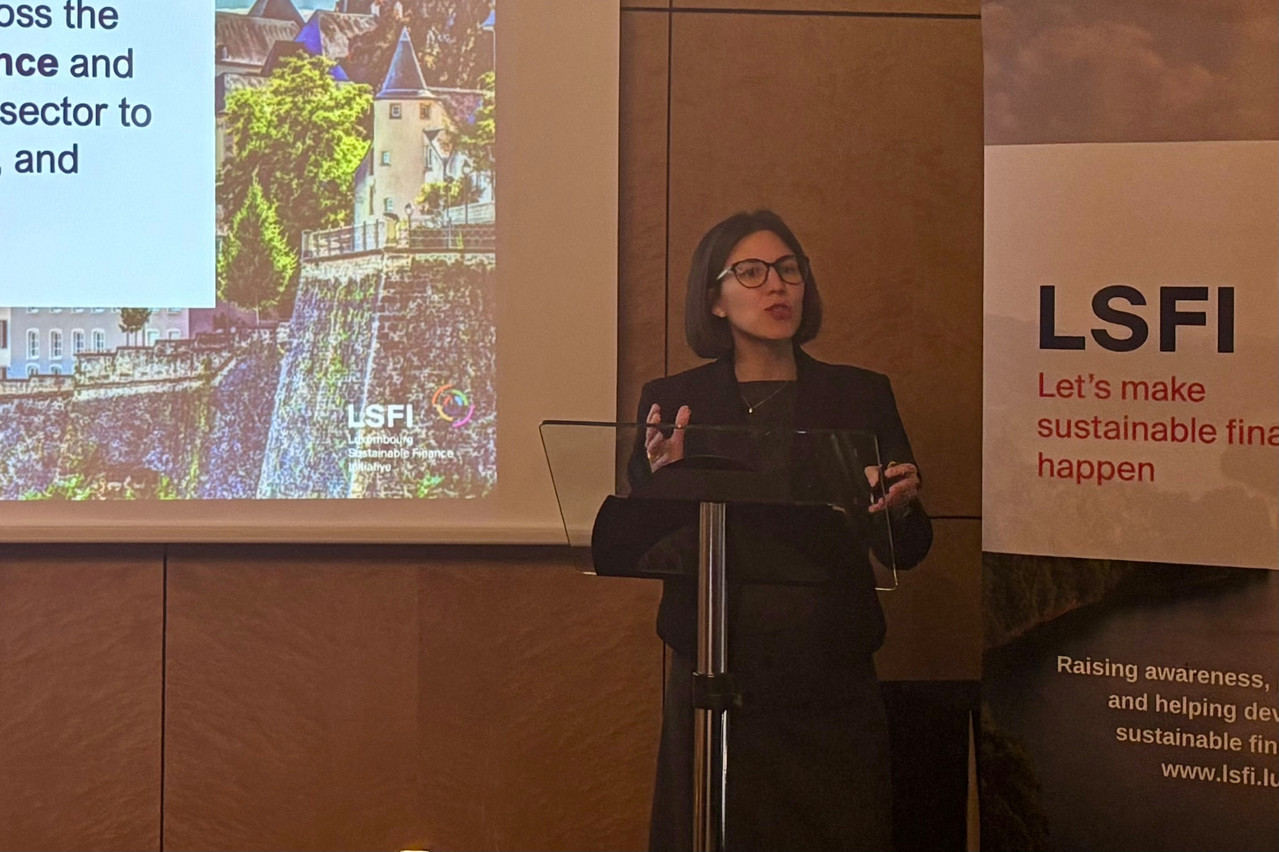Founded in 2020 as a public-private partnership to coordinate sustainable finance efforts in the grand duchy, the Luxembourg Sustainable Finance Initiative is marking its fifth year with the presentation of its strategy for 2030. The LSFI, which already serves as a knowledge hub and coordinating entity when it comes to sustainable finance, aims to work more closely with financial institutions and to continue to measure and communicate progress.
There are three main “pillars” to its updated strategy, explained CEO during a press conference on 6 February 2025. The first pillar is building expertise and leadership. “When it comes to this pillar, the LSFI acts as a Luxembourg expert on sustainable finance topics and regulation; we coach the financial sector; we provide insights to policy-makers, financial institutions and our stakeholders; and we raise the Luxembourg profile as a leader in sustainable finance on the world stage.”
To do so, it plans to continue running masterclasses, hosting events like roundtables, stakeholder forums and summits, fostering the understanding of science and impact topics in the Luxembourg financial sector, providing resources and more. In 2024, for instance, the LSFI set up an Impact Investment Advisory Board and a Scientific Advisory Board to reinforce its governance, said Centofanti. The LSFI also plans to provide sector-specific coaching to financial institutions on high-priority topics.
House of Sustainable Finance on the horizon
The second pillar of the 2030 strategy consists of “unlocking potential and mobilising the financial sector,” continued the LSFI CEO. “We’ve done this, of course, over the past four years,” she noted, but it will now be done in a “more structured way” that will involve “additional direct engagement” with financial institutions.
Much of the what is in the LSFI’s strategy consists of continuing and broadening what it is already doing, like expanding and setting up new working groups or implementing working group recommendations. But a “new” element was the announcement that the LSFI will also work to establish the House of Sustainable Finance.
Read also
Luxembourg already has the House of Startups, which brings together incubators, business accelerators and startup consulting services under one roof, as well as the House of Entrepreneurship, which serves as a single point of contact to provide support to businesses and project owners.
Now, the LSFI has received a mandate from the finance ministry, environment ministry and foreign affairs ministry to bring together sustainable finance organisations across Luxembourg into a single location. “The idea,” said Centofanti, “is to enable closer collaboration between organisations.”
A feasibility study will be conducted to better understand the next steps, but the LSFI will be looking for a physical location where people in the sustainable finance community can meet up, collaborate and exchange amongst themselves. Part of the feasibility study will involve exploring “appetite, interest, how many organisations are interested in being posted there,” she explained. “And then the next step will be to assess the needs and identify a building.”
Using data to measure progress
The LSFI’s third strategic pillar consists of measuring and communicating progress, concluded Centofanti. “This pillar reflects the LSFI’s role in analysing data and measuring the progress of sustainable finance over time. I think we managed so far to support the sector with high-quality analysis, and we will continue doing that.” The LSFI, for instance, publishes an annual report on the state of sustainable finance in Luxembourg and serves as the data partner for the , meaning it provides support with data collection and compiling reports. “With the strategy 2030, we renew, of course, our commitment to publish another study on the state of sustainable finance, but we commit to publish additional studies focusing on new sectors and data points,” said Centofanti, as well as continuing to support the Women in Finance Charter and exploring similar initiatives.
Finally, obtaining reliable and sufficient data is a major challenge in the sustainable finance sector, and the LSFI aims to create “data dashboards” for sustainable finance in Luxembourg. “By tracking the sources of capital, the financial instruments used, and the sectors and technologies this capital is used to fund, data dashboards on these flows will build a more complete picture of how sustainable finance is impacting sectors across Luxembourg,” reads the strategy.
The LSFI currently counts seven team members (and one intern), and “there is a plan to expand the team,” noted Centofanti. Positions are currently open and additional posts will be opened in the next year to “fulfil our mission and pillars of action.”
